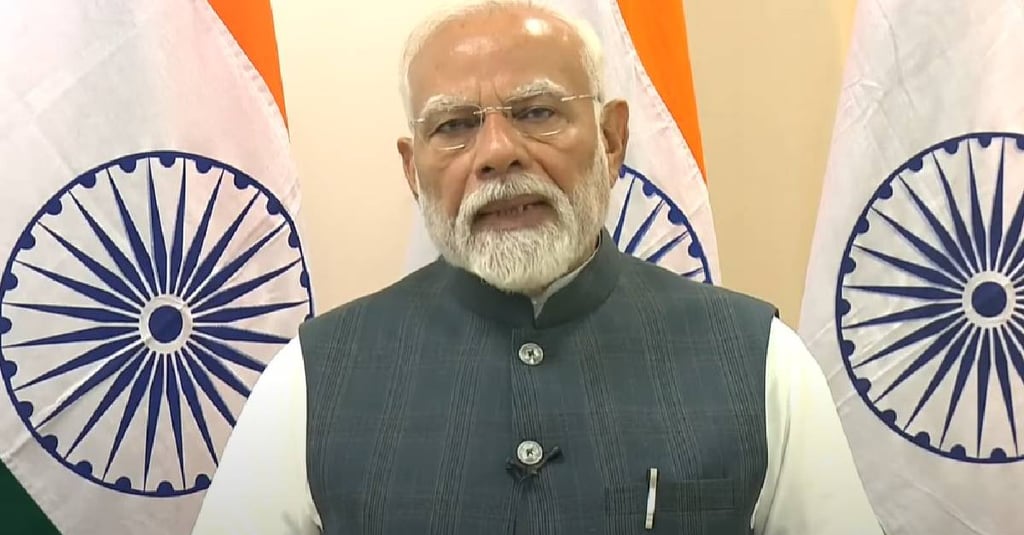Sikkim’s growth and connectivity have transformed lives, farmers leading new agriculture trends, says PM Modi
The Prime Minister was scheduled to attend the Sikkim @50 event in Gangtok but had to speak virtually from Bagdogra due to bad weather.
LOCAL


Prime Minister Narendra Modi has spoken highly about the remarkable progress in Sikkim over the past decade, especially in road connectivity and agriculture. Addressing people virtually, the Prime Minister said that earlier, travelling for jobs, education, or health care was difficult in the region. But now, the situation has changed a lot.
PM Modi shared that in Sikkim alone, about 400 kilometres of new national highways have been built in the last ten years. In addition, more than 100 kilometres of new roads have been constructed in rural areas. These roads are making life easier for people by connecting remote villages with towns and cities. He also mentioned the Atal Setu bridge, which has greatly improved the connection between Sikkim and Darjeeling, making travel faster and smoother.
The Prime Minister also spoke about the vision for a developed India, saying that a ‘Viksit Bharat’ (developed India) will stand on four strong pillars: the poor, farmers, women, and youth. On this occasion, he specially praised the farmers of Sikkim, calling them leaders in the new agricultural trends that the whole country is moving towards.
Sikkim is known for being the first fully organic state in India, which means it uses natural farming methods without chemicals. Prime Minister Modi said that the farmers of Sikkim are at the forefront of this new style of farming, which many other states in India are beginning to follow. This shift towards organic farming is important for the health of people and the environment.
The Prime Minister added that these efforts show how Sikkim is setting an example for the country by balancing nature and progress. He hopes that Sikkim will become a global green model state in the coming years.
This development is also supported by improvements in infrastructure. Mr. Modi mentioned that the Sevoke-Rongpo railway line will soon connect Sikkim with the rest of India’s rail network, making travel and transport easier. Along with roads and railways, new projects like a 500-bed district hospital in Namchi and a passenger ropeway in Sangachoeling are being built to improve health services and tourism in the state.
PM Modi’s focus on Sikkim is part of a larger plan to bring balanced growth across all regions of India. He said that every state has its own unique strengths, and the government is working to bring the Northeast to the centre of India’s development plans under the “Act East” policy.
The Prime Minister was scheduled to attend the Sikkim @50 event in Gangtok but had to speak virtually from Bagdogra due to bad weather.
Alongside Sikkim, PM Modi is also visiting other states. Today, he will visit West Bengal to lay the foundation for a City Gas Distribution project in Alipurduar and Cooch Behar districts. Later, he will go to Bihar to inaugurate the new terminal building of Patna Airport. Tomorrow, he will open multiple development projects worth over Rs 48,500 crore in Karakat, Bihar, and then head to Kanpur Nagar in Uttar Pradesh to start projects worth nearly Rs 21,000 crore.
With these efforts, Prime Minister Modi aims to connect India better and make sure every part of the country grows in a balanced way, helping farmers, women, youth, and the poor lead the way towards a developed India.
